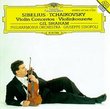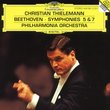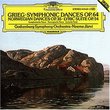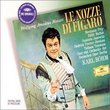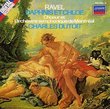| All Artists: Beethoven, Hogwood Title: Symphony 9 " Choral " Members Wishing: 0 Total Copies: 0 Label: Polygram Records Release Date: 9/13/1989 Genre: Classical Styles: Historical Periods, Classical (c.1770-1830), Symphonies Number of Discs: 1 SwapaCD Credits: 1 UPC: 028942551725 |
Search - Beethoven, Hogwood :: Symphony 9 " Choral "
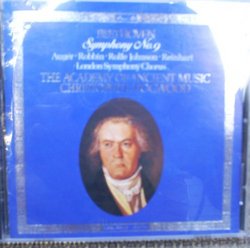 | Beethoven, Hogwood Symphony 9 " Choral " Genre: Classical
|
Larger Image |
CD DetailsSimilarly Requested CDs |
CD ReviewsRefreshingly satisfying and engaging Michael | Los Angeles, CA, USA | 11/17/2000 (5 out of 5 stars) "Though some will quip at the tempi Hogwood chooses for the movements of this work, and though some will chide him because of seemingly contradictory evidence (metronome marking vs. tempo marking), they miss the mark entirely. This IS a fresh look at an amazing work. Hogwood has the full grasp of Beethoven's monumental symphonic opus. The clarity of the orchestral playing is remarkable for its precision, virtuosity, and tone. The extra bite of "authentic/original" instruments allow for the true revolutionary elements of the work to come through. The vocalists are better than any other quartet on similar historically informed recordings (there is not a week link here, Rolfe-Johnson heroic in the march variation and Auger sublime as she travels through the stratosphere). The chorus, though not the absolute best on record, is nonetheless quite accomplished. And at the helm, Hogwood has a sure grasp of Beethoven's melodic line. The only questionable element in the recording is the selection of tempi. But these DO work. Sure, most of use are used to a very Brahmsian approach to the slow third movement, but this is not necessarily what Beethoven intended. In most performances, the third movement suffers from too much emphasis on the "Adagio molto" portion of the tempo marking at the expense of the "cantabile" (the marking reads "Adagio molto e cantabile"). The theme is often lost altogether when thusly played. Moreover, the effect of the variations is compromised at such a slow tempo. The "cantabile" tempo favored by Hogwood (and other historically minded interpreters) more fully approaches a Beethoven devoid of the indulgences of late Romantic composers and conductors who like to wallow in the treacle inappropriate to Beethoven. To all those naysayers, revisit this recording without the blinders of older recordings and you will find a recording that presents the soul of this work. To all those willing to experience a refreshing, beautiful, "on-the-mark" recording of this work need go no further than this."
|

 Track Listings (4) - Disc #1
Track Listings (4) - Disc #1